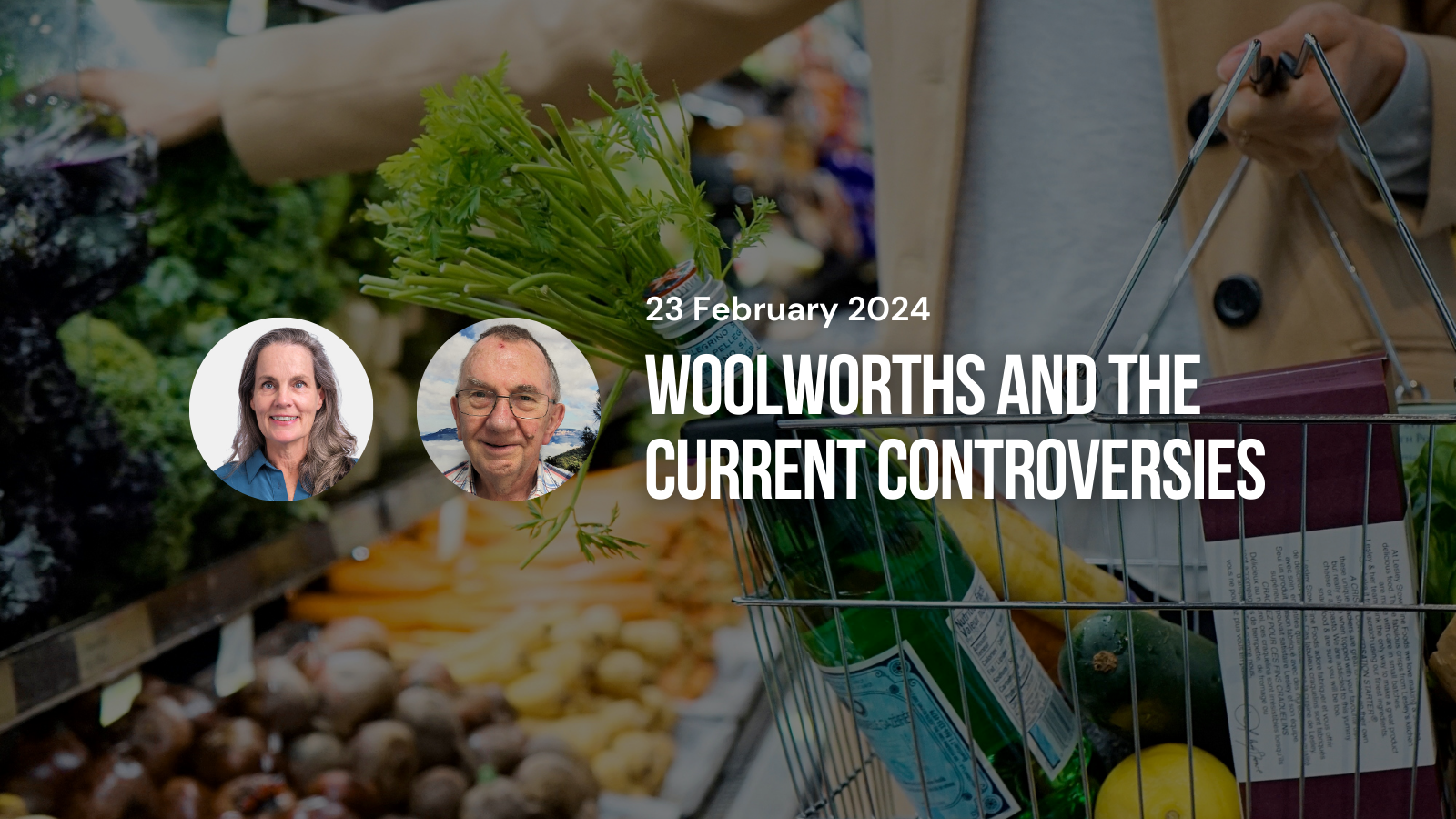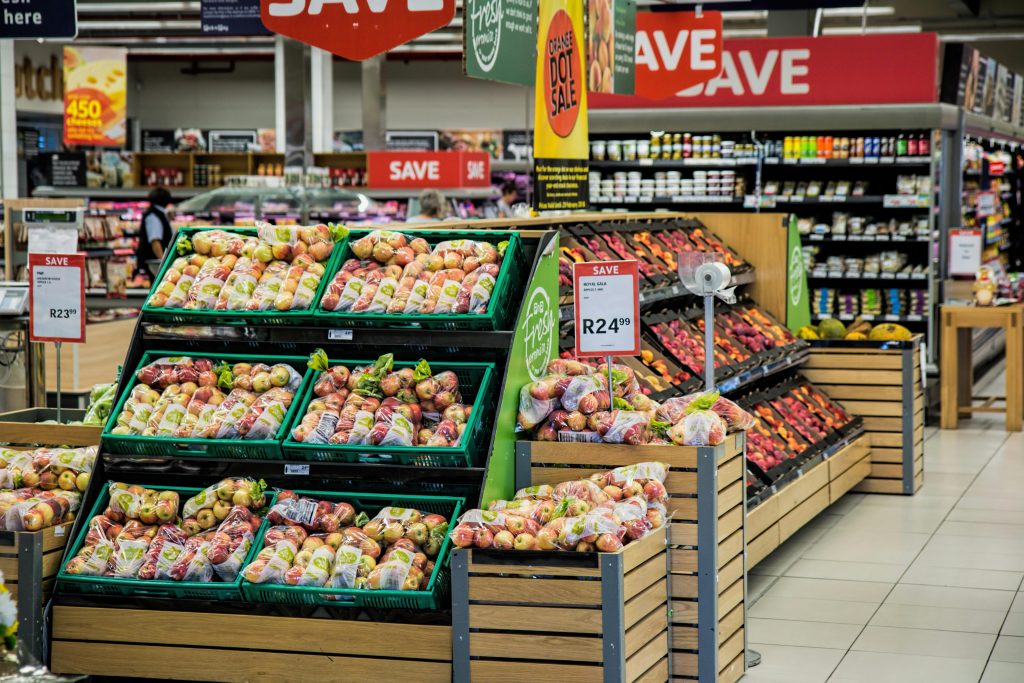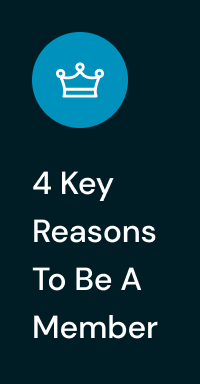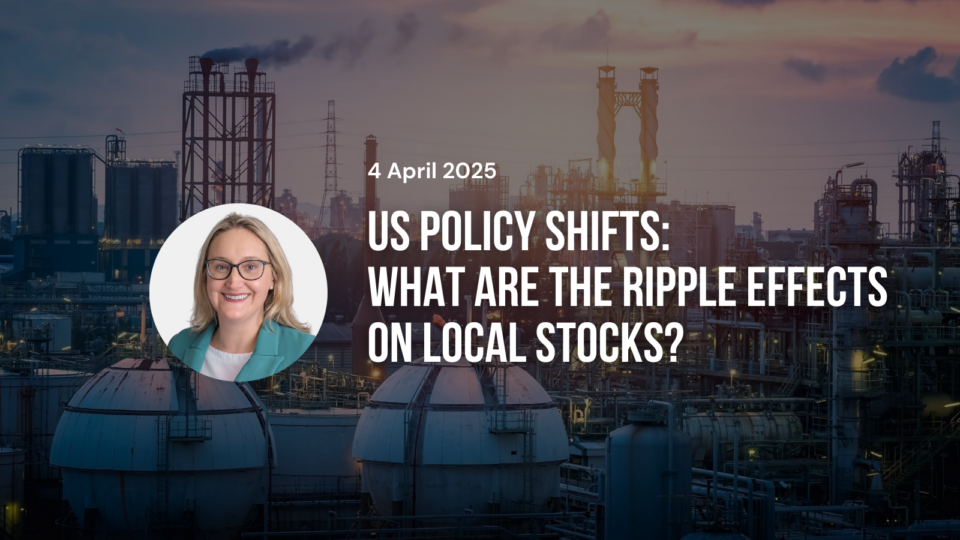

Woolworths and the current controversies
By Don Adams and Julieanne Mills, ASA Company Monitors

It is worth examining the current public debate about the grocery business in Australia and look at the largest player, Woolworths, from the viewpoint of an investor. Is this company price gouging, squashing competition, conspiring with others to bilk customers and suppliers? It is reported that there are presently six inquiries into these allegations and into competition in the supermarket industry.
When you take a closer look at the allegations it is not too hard to see that they are overblown and misleading. We will look at the evidence for each of the major charges, focusing on Woolworth’s Australian Food business (FY23 $48 billion Sales).
1. Woolworths Profit of over $1.6 billion in FY23 was exorbitant.
Woolworths is a huge company with FY23 Sales of $64.3 billion and the Profit was only 2.5% of sales. Woolworths return on capital (ROC) at 11% was in the middle of the range for comparable companies. Coles, Metcash, Wesfarmers, and JB HiFi had higher ROC, and Harvey Norman, Myer, and Endeavour had lower ROC. Profit was not out of line with the size of the company.
2. Woolworths price gouge by increasing prices at a faster rate than their cost increases.
Over the past seven years from FY17 to FY23 Woolworths Gross Margin for the Australian Food business ranged between 28.5% and 29.7% of Sales and with no upward trend. Gross Margin is Sales minus the Cost of Sales – if they were increasing prices faster than supplier prices we would expect to see a clear upward trend in Gross Margin.
In FY23 Gross Margin was 28.1% of Sales. Subtract the Cost of Doing Business, 22.1% of Sales, and you find the EBIT margin for the Australian Food segment of 6.0%.
3. Woolworths doesn’t face serious competition due to its dominant market position.
It is correct that Woolworths, at 37% is the largest player in the supermarket business in Australia. Coles is at 28%, Aldi 10%, and Metcash/IGA 7%, with 18% classified as “Other”. Woolworths point out that they face strong competition from strong non-supermarket businesses. For example, Chemist Warehouse for personal care items, and general household products such as toilet paper and dishwashing detergent. Bunnings for cleaning products, Harris Farm Market for fresh produce and deli items. Amazon offers a wide range of cleaning products, personal care items and dry and canned foods delivered within 24 hours. CostCo also has a wide range of items that are stocked by Woolworths.
These are the large competitors, there is also a wide range of delis and fruit shops that Australians can patronise.
4. Supermarkets have similar prices for products, and this is evidence of collusion.
This curious claim was made in the ABC Four Corners program on Monday, 19 February. Similar prices are not evidence of collusion, they are evidence of a competitive market because it is competition that drives prices to the same level. The benefits of this competition are the lower prices we all get at the supermarket. It also protects us from price gouging by suppliers to some extent.
5. The CEO Brad Banducci was forced to retire due to blunders.
Brad Banducci made a couple of mistakes (which he acknowledges) when he said that Big W would not sell Australia Day merchandise (apart from flags) and he disparaged Rod Sims as “retired” in the Four Corners interview. Neither of these were particularly significant nor were they related to his decision to retire. Scott Perkins, the Chair of the Woolworths Board told the briefing on first-half results that the search for a replacement for Brad started in May last year and that it was long planned to announce Brad’s retirement on the day of the results announcement.
Woolworth’s share price fell by 8.2% over the next two days after the announcement and this was most probably due to the news of Brad’s departure. There were no surprises in the financial announcement since they were in line with the market announcement of 29 January. It would seem that the investors in Woolworths have had a lot of faith in Brad Banducci’s ability and were worried to see him leave. At the briefing, analysts expressed a genuine respect for Brad’s leadership, humility and the cultural change at Woolworths seen during his 8 years.
Incidentally, the half year results showed reasonable performance in Australian Food, but NZ Food and Big W did poorly. The company took a noncash write-down of NZ assets by NZ1.6 billion. There is also a noncash loss of $209 million due to ending equity accounting for the 9.1% stake Woolworths has in Endeavour and treating it as an investment from now on.
Unfortunately, the impact of all this media and political attention is already impacting the brand and reputation of what is one of Australia’s successful, well-run companies and one of our largest employers.





